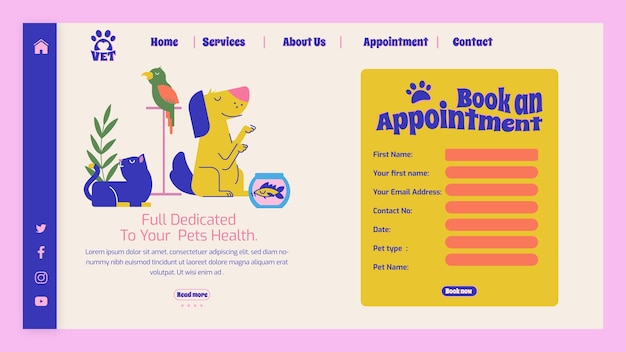Recognizing Common Summer Pet Illnesses in Northlake, TX


Recognizing Common Summer Pet Illnesses in Northlake, TX
As the summer sun settles over Northlake and the surrounding communities, pet owners often find themselves facing unique seasonal challenges. North Texas heat can be relentless, and our pets are especially vulnerable to a range of summer pet illnesses. At Canyon Falls Veterinary Hospital, we know how much your pets mean to you, and we are committed to helping you keep them safe and healthy year-round. In this article, we will guide you through the most common pet illness symptoms seen during summer in Northlake, TX, and offer practical advice on how to recognize, prevent, and respond to these health issues. You will learn how to spot early warning signs of heatstroke, dehydration, and allergies, why pets are susceptible to these problems during the warmer months, and when it is time to schedule an appointment with our veterinary team. By understanding summer pet illnesses in Northlake, TX, you can act quickly to protect your companion’s wellbeing and enjoy the season together with peace of mind. If you have questions about your pet’s health, remember you can always schedule a wellness examination with our veterinarians for comprehensive care and early detection of potential issues. To learn more, visit our page on wellness and preventive care exams.
Recognizing Signs of Summer Pet Illnesses in Northlake
Identifying Early Pet Illness Symptoms
Summer brings longer days and plenty of outdoor adventures, but it also introduces risks that may not be as prevalent during cooler months. Heatstroke, dehydration, and seasonal allergies can develop rapidly, so it is important to know what to look for. Key pet illness symptoms related to heat stress include excessive panting, drooling, lethargy, rapid heartbeat, and difficulty breathing. In severe cases, you may notice vomiting, diarrhea, or even collapse. Signs of dehydration often appear as tacky or dry gums, sunken eyes, and reduced elasticity of the skin. Allergy symptoms can be subtle at first, showing up as constant scratching, licking of the paws, watery eyes, sneezing, or inflamed skin.
Recognizing these warning signs early can make a significant difference in your pet’s recovery and comfort. For example, a dog returning from a midday walk might act sluggish, seek out shady spots, or refuse water. A cat sitting in a sunny window may begin to pant or appear unusually withdrawn. These changes are important cues that your pet could be suffering from a summer-related illness. By monitoring your pet’s normal behavior and watching for sudden shifts, you are taking the first step in ensuring their safety during the hottest months of the year.
If you ever feel uncertain about your pet’s symptoms, it is always best to consult a veterinarian near you for a thorough evaluation. Early intervention can lead to better outcomes and help your pet get back to their playful self more quickly.
Why Summer Increases the Risk of Pet Illnesses in Northlake
Understanding the Causes and Contributing Factors
Northlake and the greater North Texas region are known for their hot, humid summers. While humans can sweat and seek cool environments, pets cannot regulate their body temperature as efficiently. Dogs primarily cool themselves by panting, and cats rely on grooming and seeking shade. When temperatures climb, especially in urban and suburban areas, pavement, cars, and even shaded yards can become dangerously hot.
Heatstroke is a major concern because pets cannot sweat through their skin. Instead, they rely on panting to release heat, which becomes less effective as humidity increases. Dehydration sets in quickly, especially if pets are not drinking enough water or are very active outdoors. Factors such as age, breed, and existing health conditions can increase a pet’s vulnerability. For example, short-nosed breeds like bulldogs and pugs, elderly pets, and those with heart or lung disease are at higher risk.
Allergies tend to flare up in summer due to pollen, grasses, and increased exposure to insects like fleas and mosquitoes. Northlake’s growing season means pets are exposed to a variety of outdoor allergens, which can cause persistent itching, skin irritation, and even secondary infections if left untreated.
Recognizing that these risks are heightened during summer is crucial for pet owners. The combination of high temperatures, humidity, and environmental allergens creates conditions where summer pet illnesses are more likely to develop. Staying informed and proactive is the best defense against these challenges.
Treatment and Management of Summer Pet Illnesses
Professional Veterinary Care in Northlake
When a pet begins to show signs of a summer illness, prompt veterinary attention is essential. At Canyon Falls Veterinary Hospital, our veterinary professionals use a combination of hands-on examinations and advanced diagnostic tools to assess and treat your pet’s condition. For example, a comprehensive physical exam will help identify early signs of heatstroke, dehydration, or allergies, while our in-house diagnostic laboratory services in Northlake allow for quick testing of blood and urine to check for dehydration and organ function.
Treatment approaches for heatstroke involve moving your pet to a cooler environment, applying cool (not cold) water to their body, and administering intravenous fluids when necessary. Oxygen therapy or additional supportive care may be required in severe cases. Dehydration is managed by rehydrating your pet, which may require oral fluids for mild cases or intravenous fluids for more serious situations. Allergies can be addressed through a combination of antihistamines, medicated shampoos, diet adjustments, and, in some cases, prescription medications tailored to your pet’s specific needs.
Our veterinary team in Northlake takes pride in providing personalized treatment plans based on your pet’s unique history and current health status. We emphasize the importance of early detection, which is why regular wellness exams are so valuable during the summer months. If you notice any concerning pet illness symptoms, do not wait to schedule an appointment with a veterinarian near you for timely intervention.
Preventing Summer Pet Illnesses at Home
Practical Steps for Pet Owners in Northlake
While professional veterinary care is indispensable, there are many steps you can take at home to reduce your pet’s risk of summer illnesses. Ensuring your pet always has access to fresh water is the foundation for preventing dehydration. During walks or outdoor play, schedule activities for early morning or late evening when temperatures are cooler, and always provide shaded areas for rest. Avoid hot pavement, as it can burn sensitive paw pads and increase body temperature quickly.
For pets with allergies, regular grooming and bathing can help remove pollen and reduce skin irritation. Use veterinarian-approved flea and tick preventives to minimize exposure to biting insects. Keep your home environment clean by vacuuming and washing pet bedding frequently, as this can reduce indoor allergens that may exacerbate symptoms.
It is also helpful to recognize your pet’s individual limits. Some dogs may love running and playing outside, but during extreme heat, even the most energetic pets need to slow down. Watch for subtle cues such as seeking shade, reduced activity, or reluctance to go outside; these may be early indicators that your pet needs a break from the heat.
A proactive approach to pet wellness will go a long way in preventing summer pet illnesses in Northlake, TX. If you are preparing for travel, make sure to discuss any necessary international health certificates and summer safety plans with our veterinary team.
When to Seek Veterinary Care for Summer Pet Illnesses
Knowing When Professional Help is Needed
Sometimes, despite your best efforts, pets may still develop illness symptoms that require veterinary attention. Seek immediate care if your pet has difficulty breathing, collapses, exhibits uncontrolled vomiting or diarrhea, or shows signs of confusion. Heatstroke can escalate rapidly and is considered a medical emergency. If your pet is not responding to cooling measures or continues to deteriorate, contact a veterinarian near you without delay.
For less acute symptoms such as persistent scratching, mild lethargy, or decreased appetite, schedule an appointment for a comprehensive pet health evaluation. Our wellness and preventive care exams in Northlake are designed to catch early signs of illness and provide tailored treatment recommendations.
It is always better to err on the side of caution when it comes to your pet’s health. Timely intervention can prevent complications and ensure your companion receives the best possible care. If you are unsure whether your pet’s symptoms are cause for concern, our veterinary professionals are here to advise you and guide you through the next steps. Remember, every pet is unique, and their response to summer conditions can vary.
Keeping Pets Healthy and Happy All Summer Long in Northlake, TX
Summer should be a time of joy and adventure for you and your pets. By staying alert to common pet illness symptoms, understanding the unique risks of summer pet illnesses in Northlake, and taking preventive action, you can help your companion stay safe and comfortable. Regular checkups, early detection, and a strong relationship with your local veterinary team are the cornerstones of lifelong wellness.
If you notice any changes in your pet’s health or behavior, we encourage you to schedule an appointment with the caring team at Canyon Falls Veterinary Hospital. Our veterinarians are dedicated to delivering compassionate, quality veterinary services near you, supporting Northlake and surrounding communities. Whether you are seeking a trusted "vet near me" for routine care or need advice on summer pet illnesses, we are here to help. Contact us at (972) 559-9500 or visit us at 7251 Canyon Falls Dr, Suite 201, Northlake, TX 76226 to keep your pet healthy and happy all season long.
For more information about pet health, summer safety, or to schedule your next wellness and preventive care exam, reach out today. Your pet’s wellbeing is our highest priority, and we look forward to being your trusted partner in veterinary care.





















